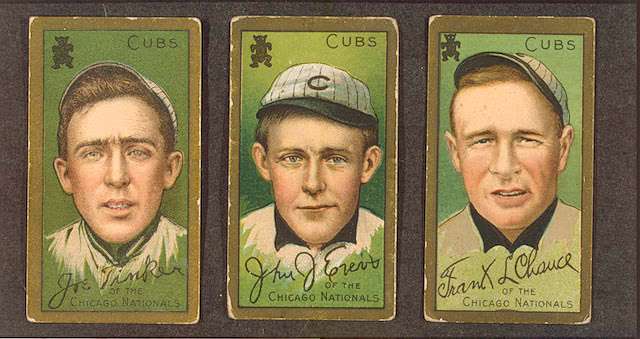My Life as a Cohort
On to the Nextstage
Leslie Locketz
April 29, 2014
“Just two and a half months have passed since we began our Cohort experience with the first reading of the world premiere of Informed Consent. The cast, the set, and the playwright have moved on to the Cleveland Playhouse where, as happened here, they are receiving rave reviews.
And now we are fortunate again to witness the birth of another world premiere, Tinker to Evers to Chance by Mat Smart. The first reading session begins at 2:00 PM on Saturday, April 26, 2014. The season finale, The Odd Couple, is playing on the Mainstage; one of the final performances of the acclaimed, I and You, will begin shortly on the Nextstage; and finding free parking nearby is a little tricky. I walk in a few minutes late.
About eight other Cohorts (I recognize many of them as belonging to the “frequent writers” group) are present, along with the playwright himself, director, stage managers, dramaturg, and actors. As this is a weekend, the large group that is the Geva staff will not “Meet and Greet” until Tuesday (when, I, luckily, am able to visit again). When I arrive, everyone is in the middle of telling their own memorable family sports stories, and I worry what I will say.
As a kid, I hated gym and never learned to like team sports. The entire strategy of our junior high basketball team was “pass the ball to Karen”. In elementary school softball, I was always relegated to the outfield where no balls ever came. It was hot and boring under the Colorado sun. I remember next to nothing about the actual sports events I watched.
What I do remember about sports growing up were the relationships, the weather, the food (eating hot peanuts in their shells with my dad watching the Denver Bears, flirting with boys when I was 15 at weekend B’nai B’rith softball games, sitting on the bleachers on crisp perfect, blue sky autumn days watching the George Washington championship football team with my friends).
 So I am a little skeptical about a play ostensibly about baseball. Still it has such a poetic title, Tinker to Evers to Chance and shortly I learn that that lovely phrase is part of a poem that figures prominently in the play. I also learn that a shared love of sports is a vehicle for a play about relationships, risk taking, and our striving to be better. There is a “play within a play” in this story, so this is also a play about the creative act itself.
So I am a little skeptical about a play ostensibly about baseball. Still it has such a poetic title, Tinker to Evers to Chance and shortly I learn that that lovely phrase is part of a poem that figures prominently in the play. I also learn that a shared love of sports is a vehicle for a play about relationships, risk taking, and our striving to be better. There is a “play within a play” in this story, so this is also a play about the creative act itself.
Mat Smart’s play will be performed on Geva’s Nextstage, a smaller venue than the Mainstage, and everything about it is compressed. Instead of meeting in the main rehearsal room, we are in the library. Instead of five actors, there are two. Instead of four weeks until show time, audiences will arrive in just a little over two, and instead of a four week run, there will be a two week run.
But, this is no way is a reflection on the quality or the importance of this theatrical work. In just a short time, I am totally drawn in by this play, by these actors, by this playwright, and, happily, can once again witness director, Sean Daniels, work his magic.
Going to a first reading and a first “Meet and Greet” (especially of a world premiere) is not only is a way to see a play evolve as it is edited, staged, acquires props, a set, costumes, but also a chance to learn what questions the playwright was attempting to answer, what drew the director to the play, how these particular actors came to be here.
I see now more than ever than Sean Daniels is a kind of talent scout for exceptional new plays. When he comes across one he loves, he lobbies for it to be produced in the venues where he works. On Tuesday (Meet and Greet for the Geva staff), I learn that Jim Craven did a reading of this play in Minneapolis three years ago and that Emily Kitchens has participated in workshops of the play in NYC. Like books going through many edits, before they are published, new plays are tweaked in front of informal audiences before they are fully staged.
Sean also takes the time to explain to the actors the purpose of the cohort program (now in its second year at Geva). “Rehearsal rooms,” he says, “look the same in St. Louis, or Rochester, or Atlanta. When you invite Cohorts, it makes it local.” He admits that at first he was afraid of inviting 20 people to observe the process—that they would be judging the theater makers at every turn. But, in fact, the opposite has happened. Creating the Cohorts has created a group of 20 fans who want the play and the players to succeed at every turn. Cohorts, refer to the shows as “my show”. They are invested, excited, and become a support system for the team. Now Sean tries to do this at every theater where he works.
And that is something else that has become “real” for me, the nomadic lifestyle of many of the theater folk. Since I met Sean, in February, he has not only directed the plays in Rochester and Cleveland, but, in between, has done work in Manhattan and Atlanta, and maybe even visited his mom in Florida. I ask him how he keeps from getting disoriented, and he tells me he just has to make sure he has the right shirt on for the locale.
Mat, the playwright, in turn, thanks us, thanks Geva, for producing his play. “It’s great to be here. It takes courage for a theater do to a world premiere. I appreciate you for investing in me.” He tells us that this is his fourth trip to Rochester in the last 13 months. He’s even seen a Red Wings game.
Emily Stork, the lighting designer, is excited, too. This isn’t just a “living room drama”. We get to sneak into the characters’ past, to see how they got to where they are.
When I visit on Tuesday, they are out of the library and into the rehearsal room. Unlike the bare bones rehearsal set of Informed Consent, the room is already full of furniture representing the two apartments, one crowded and long lived in and one spare, of Act I and Act II of From Tinker to Evers to Chance. There are couches, bookshelves, coffee tables, a TV, a dinette set, photos, bric a brac. The actors already have props, big shoulder bags, papers, and this is only Day 3 of rehearsal. They have already committed quite a bit to memory.
Still on Day 3, there is a new script. Mat says, “It is a new script, but not entirely a new play.” Over the weekend, under Sean’s direction, everyone has worked to understand the “back story”, the motivations even of those characters not present. Small shifts in wording sometimes create large shifts in meaning.
Today, Tuesday, I also take the opportunity for a quick visit to the costume shop to see what the characters will wear. On my visit for Informed Consent, I saw beading and draping and stitching. I saw ribbons and feathers for original costumes. Now I am treated to Amanda’s shopping spree, several styles and sizes of similar navy pantsuits and grey shells and belted trench coats for Lauren (Emily Kitchens). Since Amanda is not only the costume designer for the play but also the director of Geva’s costume shop, she gets to do the shopping. She will keep whatever fits Emily the best and return the rest to the stores. The special “Evers” 1906 Chicago Cubs t-shirt will be created in house.
One of the questions the play raises according to Sean is “how do we choose to be active participants in this world?” I guess that’s what being a Cohort does for our experience of theater, lets us be active participants, by being immersed in the process, also by writing about it and by reading what the others have written.
Mat Smart told us the first day that “in baseball, every game is determined by a single event, a single fork in the road” and that this is also so in our lives. Will this theatrical immersion, this requirement to write be a fork in the road for us?” – Leslie Locketz

